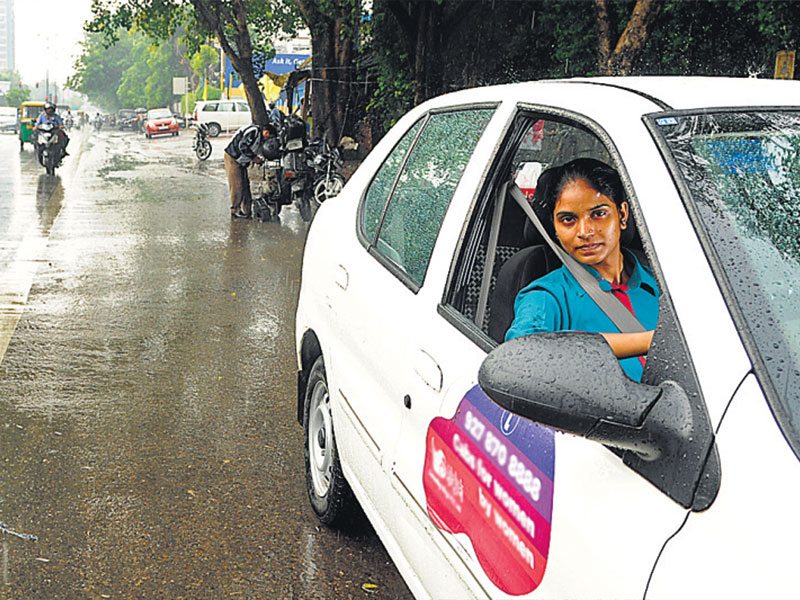By Manoj Sharma
Hindustan Times, New Delhi.
NEW DELHI
Sarita, 28, began training to be a driver with the hopes of empowering herself socially and economically. But she never completed the course.
“I thought it would be better to work as a driver than a maid. But my parents felt this is not a profession for women and I had to bow to their wish. My husband, a taxi driver himself, too was not supportive,” says Sarita.
Her story is unfortunately not unique. In the past five years, the Institute of Driving and Traffic Research (IDTR) in Delhi has trained around 3,000 underprivileged women but the Capital has barely 100 women cab drivers — most of them private chauffeurs.
A week after the Uber rape case, the Delhi police said it would teach over 100 girls driving and self-defence and help them get jobs. Last year, NDMC’s women technical institute too started a pilot project to train 40 female drivers. But none have hit the road yet.
This is because merely giving training is not enough. The problem lies in the lack of support and societal acceptance for female drivers, which cause many to opt out. Those who do become drivers face daily abuse and discrimination.
“The male drivers give us dirty looks. They feel we are intruding into their bastion,” says Chandni, 23, who works with Sakha Cabs — Delhi’s only ‘for women by women’ cab service.
“I do night duties pretty often and so my neighbours feel I am into something fishy. In fact, many women who trained with me dropped out because of such skewed perceptions,” adds Chandni.
Sujata, who works with a cab company on a contract basis, says: “Merely giving women training is not enough. The government, which keeps talking about women’s empowerment, needs to help by giving them soft loans to buy their own cars. From my experience I can say that most cab companies are not considerate of the problems women drivers face at home.”
Director of IDTR, Mahesh Rajoria, agrees: “Apart from training, there is a need to provide secure environment to female drivers.”
“When these women come here they are extremely motivated and full of enthusiasm. Many want to join as DTC drivers. But they lose interest and drop out due to lack of family support or when they realise they can’t get a government job,” adds Manisha Sharma, a trainer at IDTR.
Delhi-based Azad Foundation is one of the first non-government organizations to train women as drivers. In the past few years, it has trained 300 women. While 65 are now working as private chauffeurs, the rest are commercial drivers with its sister organization, Sakha Cabs.
“A lot of these women are victims of violence at home, a major reason why they drop out. We also face a lot of problems getting licenses for these women. The transport department says they have a gender-neutral licensing system but it does not always work in an uneven society like ours,” says Meenu Vadera, executive director of Azad Foundation.
What these women require is a good welfare system to support them in other ways. “Apart from training, these women also need things like crèches for their children. This will help bring many women into the city’s public transport system,” says Vadera.














































































































































































































































































































































































